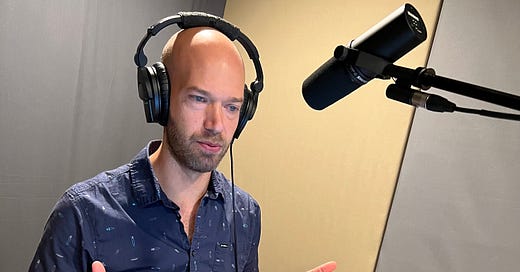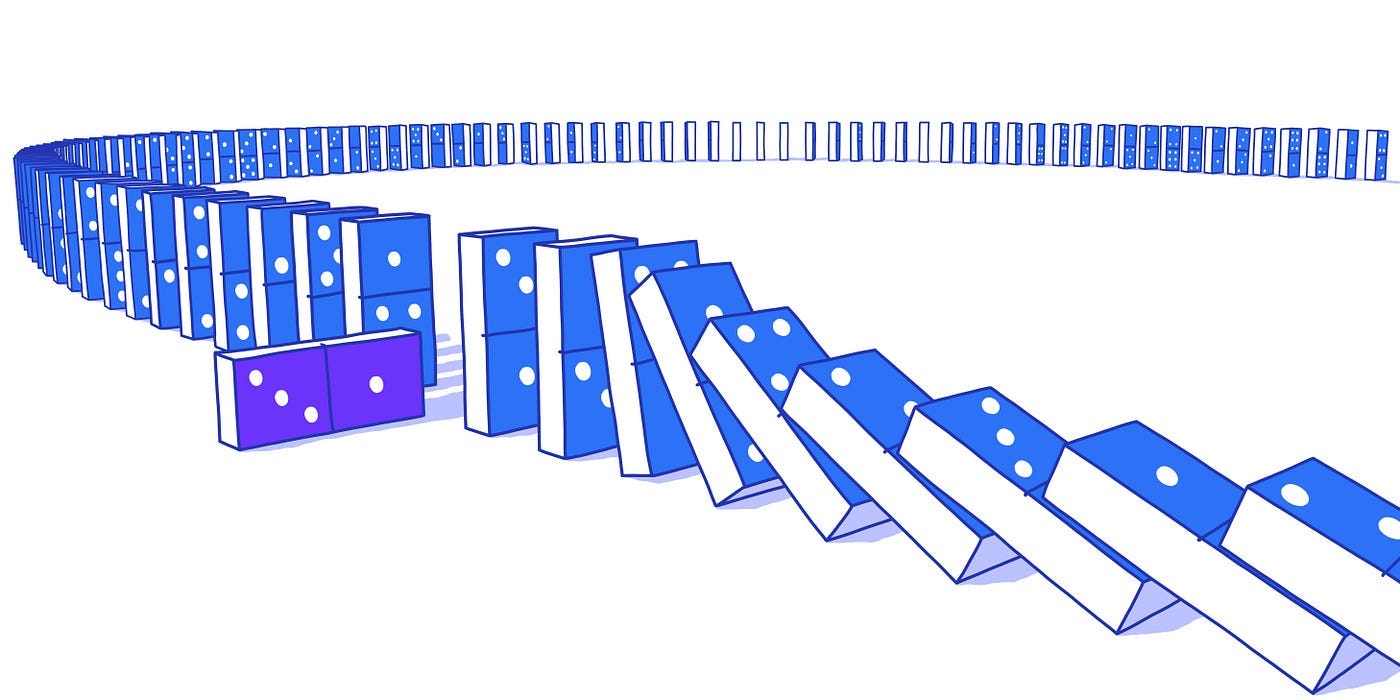Freakonomics Radio: School shootings are a causal chain of failures
I was a guest on the Freakonomics weekly podcast to discuss the process of collecting school shooting data and how to think differently about preventing future attacks.
Freakonomics Radio is a big deal. Steven Levitt and Stephen Dubner’s best selling book from 2005 has evolved into a portfolio of podcasts looking at “the hidden side of everything”. The flagship show, Freakonomics Radio, features long-form interviews by Dubner with guests. This summer included US ambassador to Japan Rahm Emanuel, Hollywood super-agent Ari Emanuel, Microsoft CEO Satya Nadella, future NFL hall-of-famer Jason Kelce, Nobel Prize in Economics winner Claudia Goldin….and me, the only person who tracks every school shooting (the title of the bonus episode with my full interview).
The show is an all-genre top 100 podcast that plays across streaming platforms, has a dedicated satellite radio channel, and is syndicated nationwide to NPR affiliates totaling an estimated 20 million weekly listeners.
If you have 30 minutes for my interview (or an hour for the full episode), here is the YouTube link. You can also find it on any podcast app.
If you don’t have time to listen, or just want a quick preview of what you will hear, this is a quick summary of the key points.
How This Interview Happened
Freakonomics is my favorite podcast and I listen to the newest episode every Thursday morning when I take our dogs for their morning walk. It was about 7am last Spring when I started to play the new episode and heard Stephen Dubner open the show by asking listeners to send emails about failures for an upcoming series. For months I had been brainstorming ways to connect with the show and talk about my research. In that exact moment I realized the connection so I sat down on the curb while the dogs patiently waited and fired off an email to the show.
DUBNER: David, you sent us an email a while back. It said, “The causal chain leading up to a school shooting has dozens of events, and every single one of them needs to be a failure for the shooting to occur. Any single success would break the chain and prevent the shooting from happening.” That sounds to me like both an empirical argument and almost a philosophical argument. Can you unpack that for me? What do you mean by that?
RIEDMAN: I think that it’s both empirical, based on looking at now thousands of incidents, and philosophical because, as you said, leading up to that shooting, there’s this causal chain of actions. And with each one of those actions, there’s either a right or a wrong decision that can be made.
Breaking the Chain of Failures
More shootings are averted than attacks that happen. So just last month, at a high school in Ohio, a student walked into the bathroom, and he found a bullet that was sitting upright on the toilet seat. And he knew that something was wrong. So he went, and he found the school resource officer, the vice principal, the principal, and a teacher, and told all of them there’s a problem. And they took him seriously and they detained a student, and in his backpack, he had a loaded handgun, three loaded magazines, a hit list, and a written plan to commit a shooting that day.
These mass shootings and these school shootings are public suicides, and somebody is going to cry for help until the moment right before the attack. And that bullet was left there hoping somebody would find it. And that’s the opportunity that we have. If somebody knows what to do, and has someone to talk to, we can prevent almost every one of these attacks.
Fundamental Problems with School Security
The K-12 School Shooting Database was created out of the need to test a concept for a threat assessment tool. When there wasn’t any data available to show how many school shootings this tool might stop, the first version of the database was created back in February 2018.
This lack of data speaks to a broader problem with school security:
We have no national guidance and no common playbook for how a school official is supposed to react to the threat of a school shooting. It’s on people to essentially make it up when they’re in these circumstances. After 9/11, the public was engaged in preventing terrorism. And we created the “See Something, Say Something” program. And every citizen knew what to look out for and knew what actions to take. And from taking those actions, you would immediately get the attention of federal resources that would make sure there was an investigation.
We’ve never formalized “See Something, Say Something” school shootings. We tell people to look for red flags, but we haven’t given clear action to take. And even if that action is taken, there’s nothing to make sure that that information doesn’t fall through the cracks. There’s a multibillion-dollar school-security industry. It’s based on people’s assertions about what they think might be good ideas for school security. None of it is based on empirical evidence. Even the procedures of “run, hide, fight” are not rooted in any empirical study.
In fortification of the schools, in adding school police officers, in creating all of these levels of fortresses around schools and public spaces, the person that ultimately wants to commit a mass shooting is somebody who’s very, very deeply hurt. And rather than trying to keep that person further out, and demonize that person even further, if we can just show them a tiny bit of kindness, you know, a lot of these shootings would never happen. Probably none of these shootings would happen.
‘Learning Cultures’ and Accepting Failure
The point of this four part series was to explore different ways to thinking about failures. It’s a popular trend across all types of industries, and even government agencies, to describe the organizations as “learning cultures” where people can experiment and fail without consequences. But school safety can’t be a learning culture, because the consequences of a failure are too serious.
Summing it Up
After talking to me for an hour about Hurricane Katrina, terrorism, and school shootings, Stephen Dubner concluded that “if you look at the long arc of David Riedman’s career — as someone who wants to protect innocent people from terrible things — you see that it, too, was a long chain of events. The fear that fueled him in high school, the fear of tragedy, has driven him to prevent as many tragedies as he can. This is an absolute reverse image of the chain of events that create so many tragedies, so many failures (as we’ve been calling them today).
The fact that we humans are capable of this, too — of creating a virtuous circle, rather than a vicious circle — is testimony to the fact that failure is not inevitable.”
Personal note: It was an absolute honor to be interviewed by someone that I have (mostly) admired for years. Being on this podcast was more than just a half hour of content, it is being part of a community of people who think differently about big problems, challenge the status quo, and demand that our future world is a better place.
David Riedman is the creator of the K-12 School Shooting Database and a national expert on school shootings. Listen to my other recent interview the New England Journal of Medicine weekly podcast!





